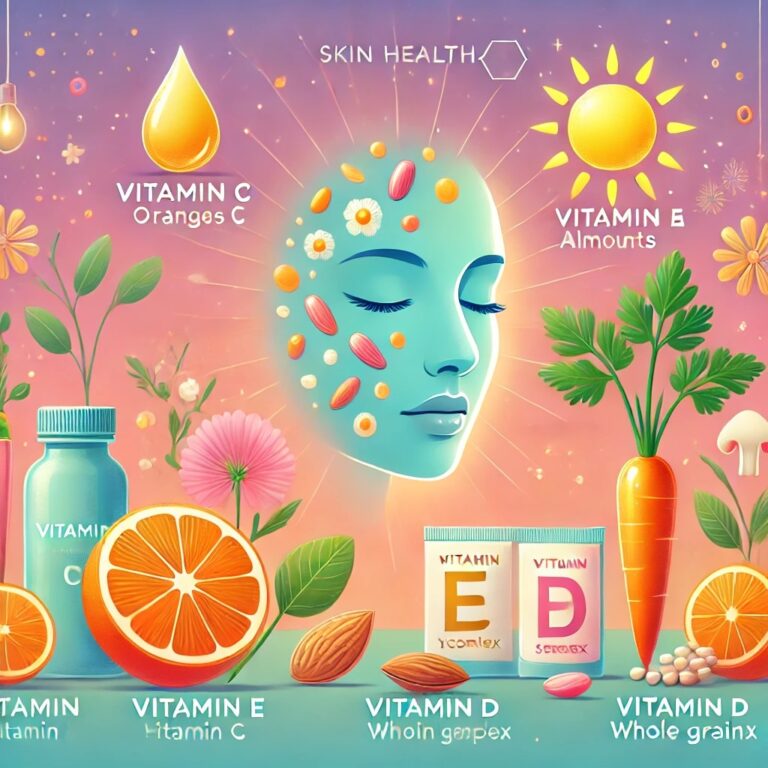Bone health is a crucial part of overall well-being, affecting mobility and the body’s ability to function effectively. Osteoporosis, a common bone condition, is especially prevalent among older adults. It causes bones to become brittle and fragile, significantly increasing the risk of fractures and impacting quality of life. Fortunately, with the right lifestyle choices and nutritional management, the risk of osteoporosis can be significantly reduced. This article provides an in-depth look into the causes of osteoporosis, key prevention strategies, and how to maintain long-term bone health through diet, exercise, and healthy habits.
Causes of Osteoporosis
Osteoporosis is often referred to as a “silent disease” because it typically shows no symptoms in its early stages. However, the danger lies in the gradual weakening of bones, which often goes unnoticed until a fracture occurs. Here are the main causes of osteoporosis:
1. Natural Decline in Bone Density
As we age, the body’s metabolic processes slow down, and bone density gradually decreases. Women experience a sharper decline in bone density after menopause due to a significant drop in estrogen levels.
2. Insufficient Nutritional Intake
Bones rely on essential nutrients like calcium, vitamin D, and other trace elements to stay strong. A diet lacking in these nutrients increases the risk of osteoporosis.
3. Lack of Physical Activity
A sedentary lifestyle, particularly the absence of weight-bearing and resistance exercises, reduces bone strength. Weak muscles also increase the likelihood of falls and fractures.
4. Unhealthy Lifestyle Habits
Smoking, excessive alcohol consumption, and high-sodium diets can harm bone health. For example, smoking interferes with bone cell regeneration, while high salt intake accelerates calcium loss.
5. Genetic Factors
A family history of osteoporosis can significantly increase an individual’s risk, indicating that genetic factors play a role in bone density and maintenance.
Key Nutrients for Bone Health
Maintaining bone health depends on a well-balanced diet. Here are the essential nutrients and their roles in bone health:
1. Calcium: The Building Block of Bones
Calcium is the foundation of bone health, making up a significant portion of bone composition.
• Function: Maintains bone density and strength, supports muscle contraction, and aids nerve transmission.
• Sources: Milk, cheese, yogurt, tofu, almonds, and dark leafy greens like spinach and kale.
2. Vitamin D: The Calcium Booster
Vitamin D enhances calcium absorption and strengthens bones.
• Function: Regulates calcium levels in the blood and supports bone and tooth health.
• Sources: Sunlight exposure, salmon, cod liver oil, eggs, and fortified foods like milk and cereals.
3. Magnesium: Supporting Bone Mineralization
Magnesium plays a key role in depositing calcium into bones and activating vitamin D.
• Sources: Whole grains, nuts, seeds, legumes, and dark leafy vegetables.
4. Protein: Repair and Support for Bone Tissue
Protein is not only essential for muscle development but also contributes to the structure and repair of bones.
• Sources: Lean meats, fish, eggs, beans, and dairy products.
5. Vitamin K: A Bone Metabolism Helper
Vitamin K contributes to bone mineralization and helps reduce the risk of fractures.
• Sources: Leafy greens (kale, spinach), broccoli, and fermented foods like natto.
Lifestyle Tips for Preventing Osteoporosis
In addition to a nutrient-rich diet, healthy lifestyle choices are vital for maintaining strong bones. Here are some practical tips:
1. Engage in Weight-Bearing and Resistance Exercises
Weight-bearing exercises (e.g., walking, jogging, climbing stairs) and resistance training (e.g., using dumbbells or resistance bands) are the most effective ways to increase bone density. Regular physical activity reduces bone loss and builds strength.
2. Get Adequate Sunlight
Sunlight is the best natural source of vitamin D. Spending 15-30 minutes a day outdoors can help your body produce enough vitamin D. Be sure to take appropriate sun protection measures to avoid sunburn.
3. Avoid Smoking and Limit Alcohol
Smoking interferes with bone cell activity, while excessive alcohol consumption reduces calcium absorption. Avoiding these habits significantly benefits bone health.
4. Reduce Sodium Intake
High sodium intake increases calcium loss through urine. Opt for a low-sodium diet by reducing processed food consumption and choosing fresh, whole foods.
5. Regular Bone Density Checks
Especially for postmenopausal women and older adults, regular bone density tests can help detect early signs of osteoporosis and facilitate timely interventions.
Bone Health Tips for Different Groups
1. Women
Postmenopausal women are at higher risk of osteoporosis due to decreased estrogen levels. They should prioritize calcium and vitamin D intake and undergo regular bone density screenings.
2. Older Adults
Seniors should focus on balanced nutrition, adequate hydration, and fall prevention measures such as installing handrails or using non-slip mats to reduce the risk of fractures.
3. Children and Adolescents
This stage is critical for bone development. Ensure sufficient calcium, protein, and vitamin D intake, and encourage outdoor play and physical activities to promote bone growth.
Conclusion
Osteoporosis is not an inevitable consequence of aging. With the right diet, regular exercise, and healthy lifestyle choices, the risk of osteoporosis can be significantly reduced. Regardless of age, maintaining bone health is crucial for a strong, active, and fulfilling life. Start taking care of your bones today, and enjoy a healthier tomorrow!




















